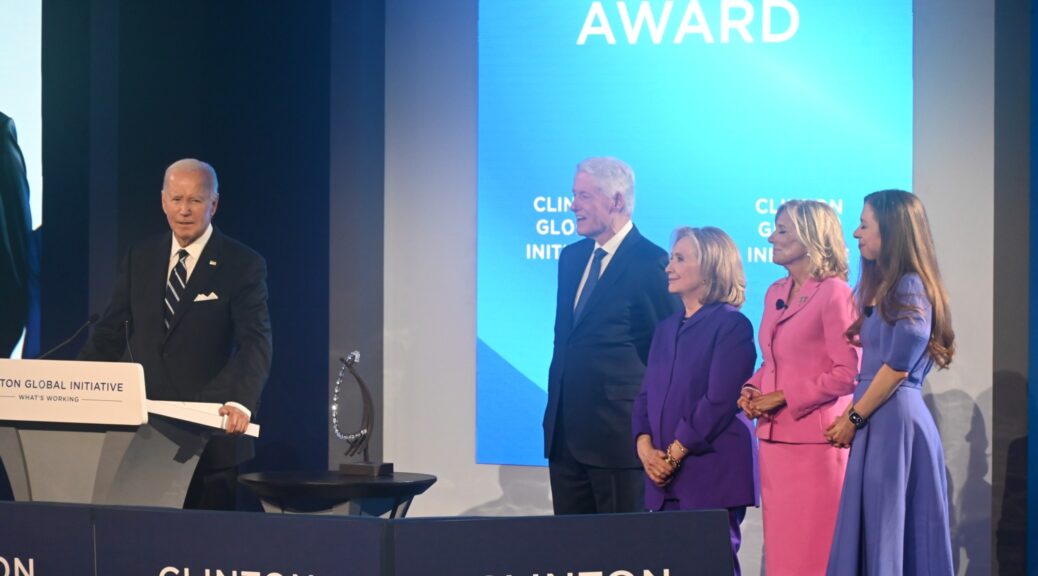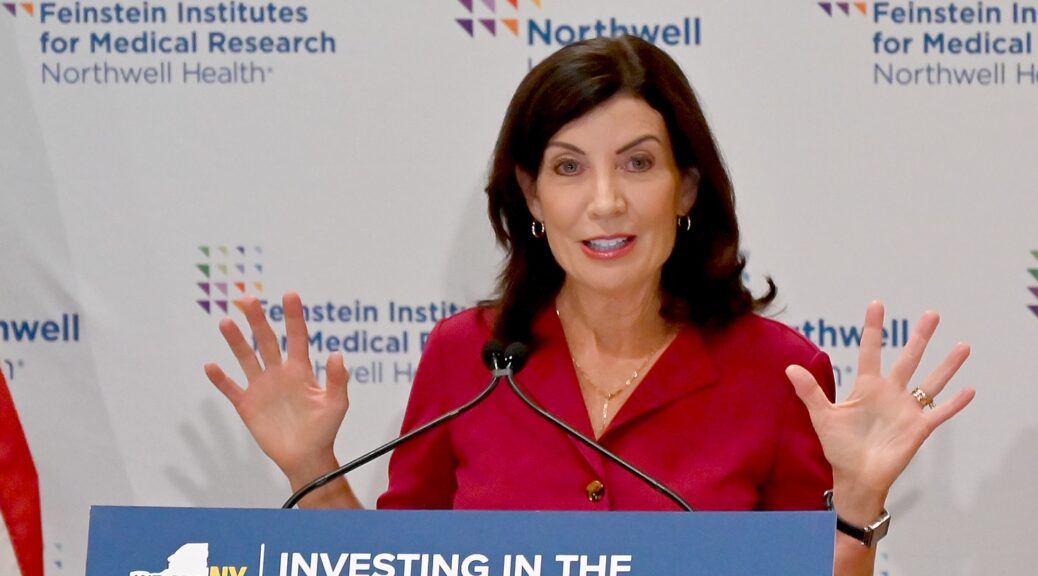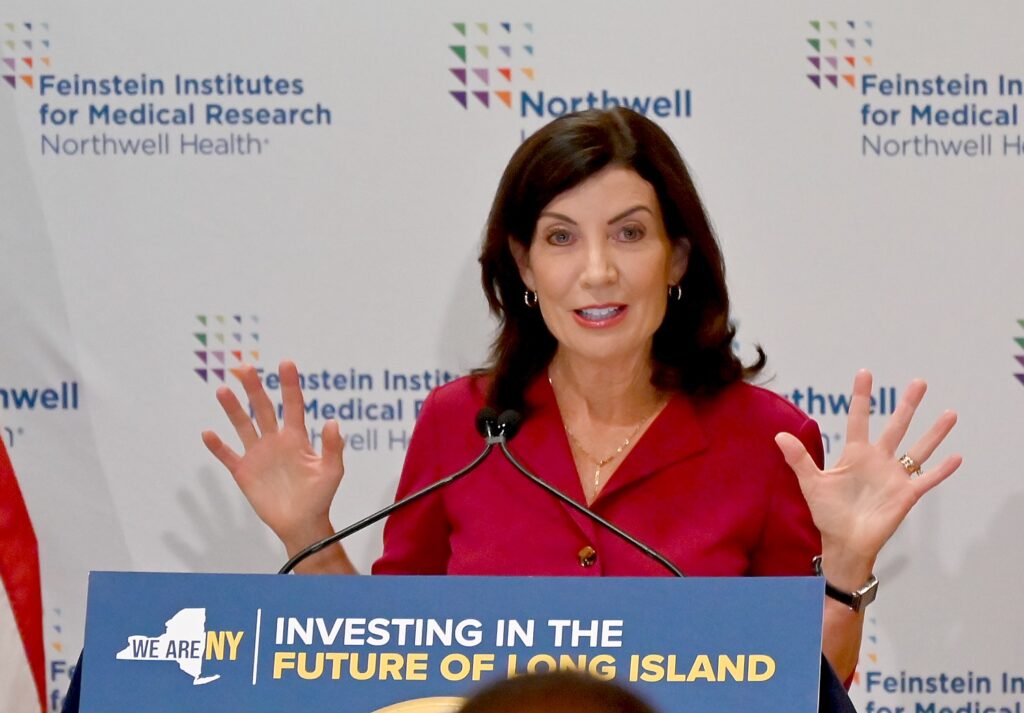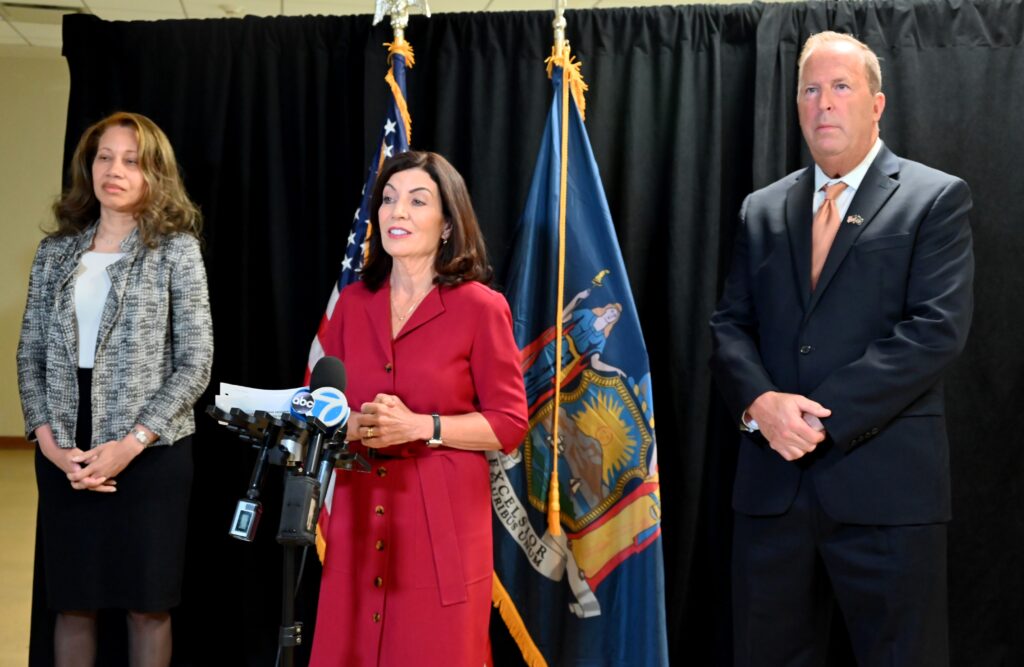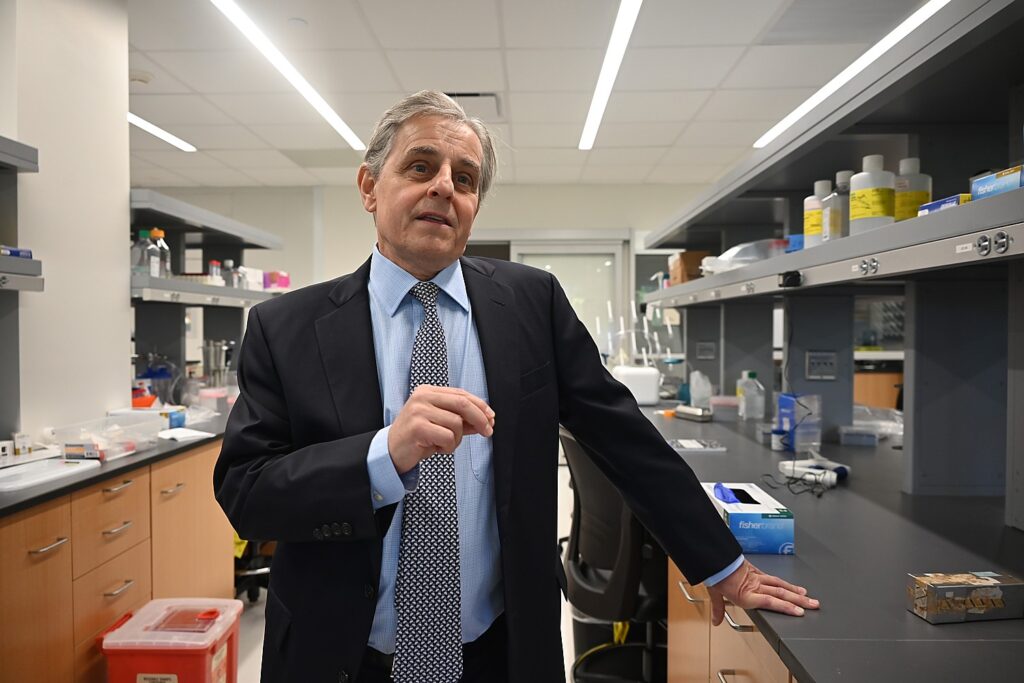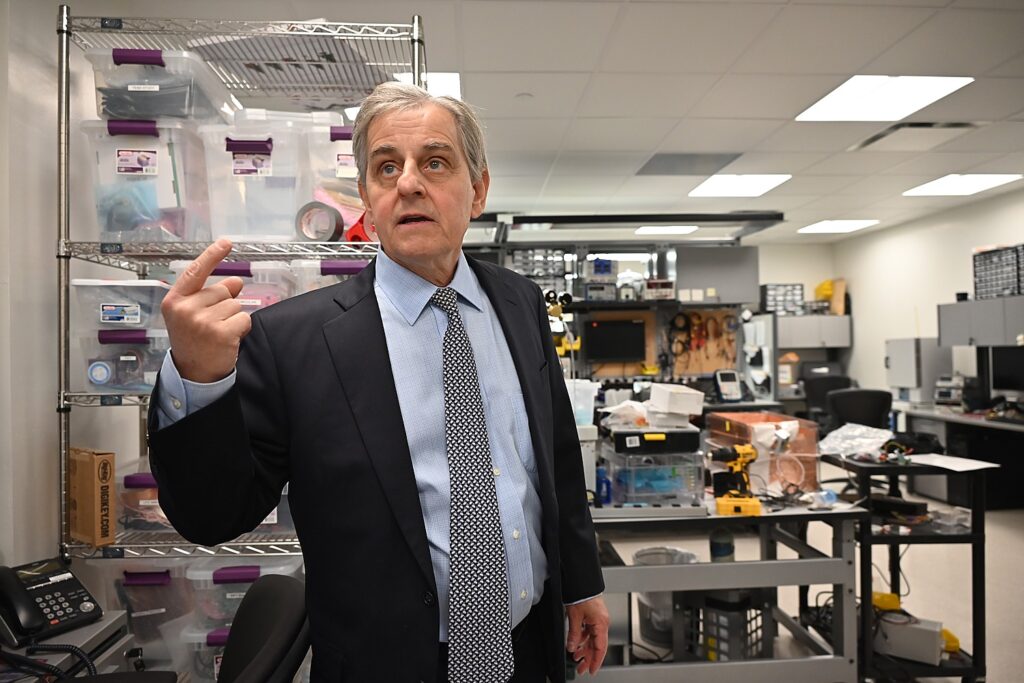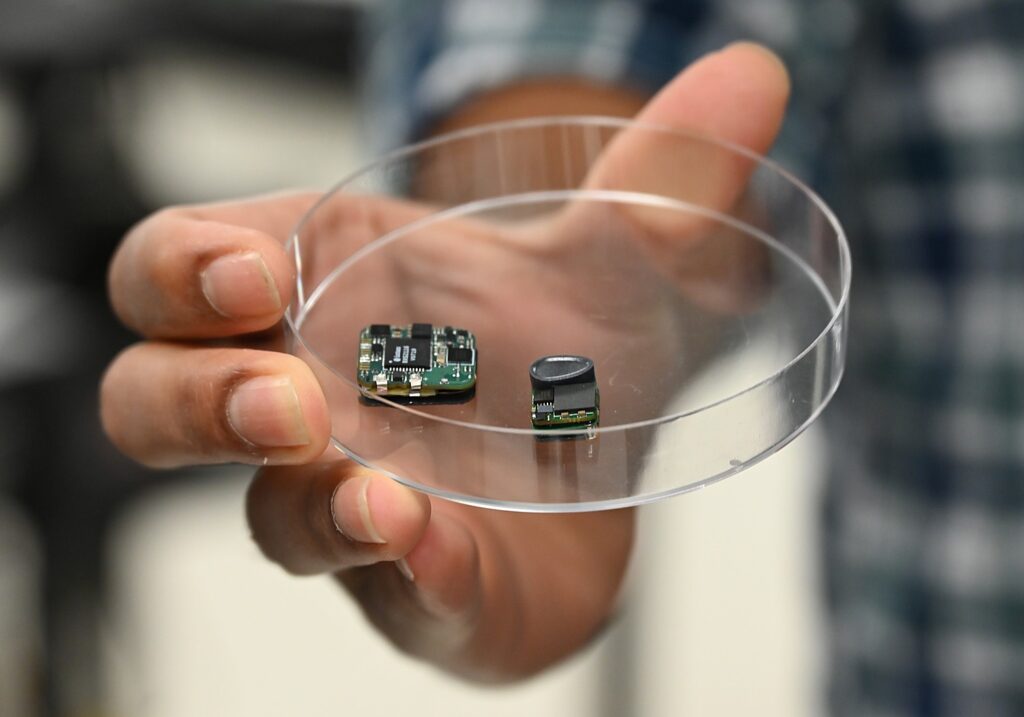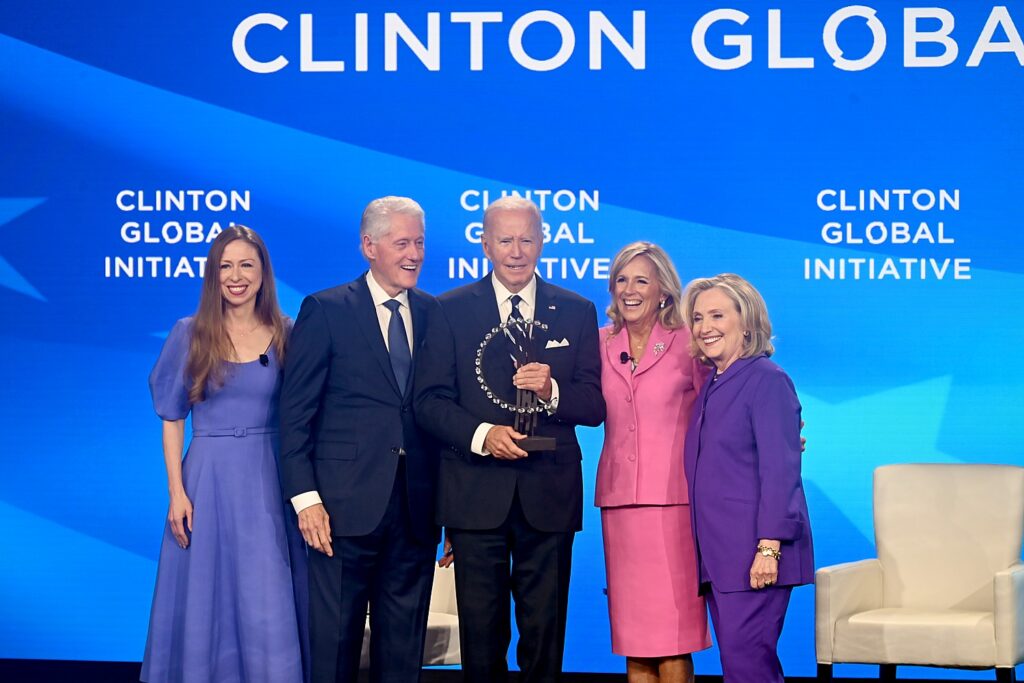
By Karen Rubin, News-Photos-Features.com, [email protected]
First Lady Jill Biden at the 2024 Clinton Global Initiative announced the Department of Defense’s new commitment to spend $500 million on vital women’s health research. With this new investment, the Department will fund research on conditions that affect women uniquely, disproportionately, or differently—such as ovarian cancer, rheumatoid arthritis, and musculoskeletal injuries. This commitment is consistent with President Biden’s Executive Order on Advancing Women’s Health Research and Innovation as well as the Department of Defense’s broader efforts to support the health of the women it serves and the medical readiness of the force.
The First Lady, joined by Chelsea Clinton, vice chair of the Clinton Foundation, and Dr. Valerie Montgomery Rice, president of Morehouse Medical School and an infertility specialist and researcher, also discussed the rapid progress being made by the White House Initiative on Women’s Health Research, which was launched less than a year ago with the goal of fundamentally changing how we fund and approach women’s health research, that included $100 million for transformative research and development in women’s health.
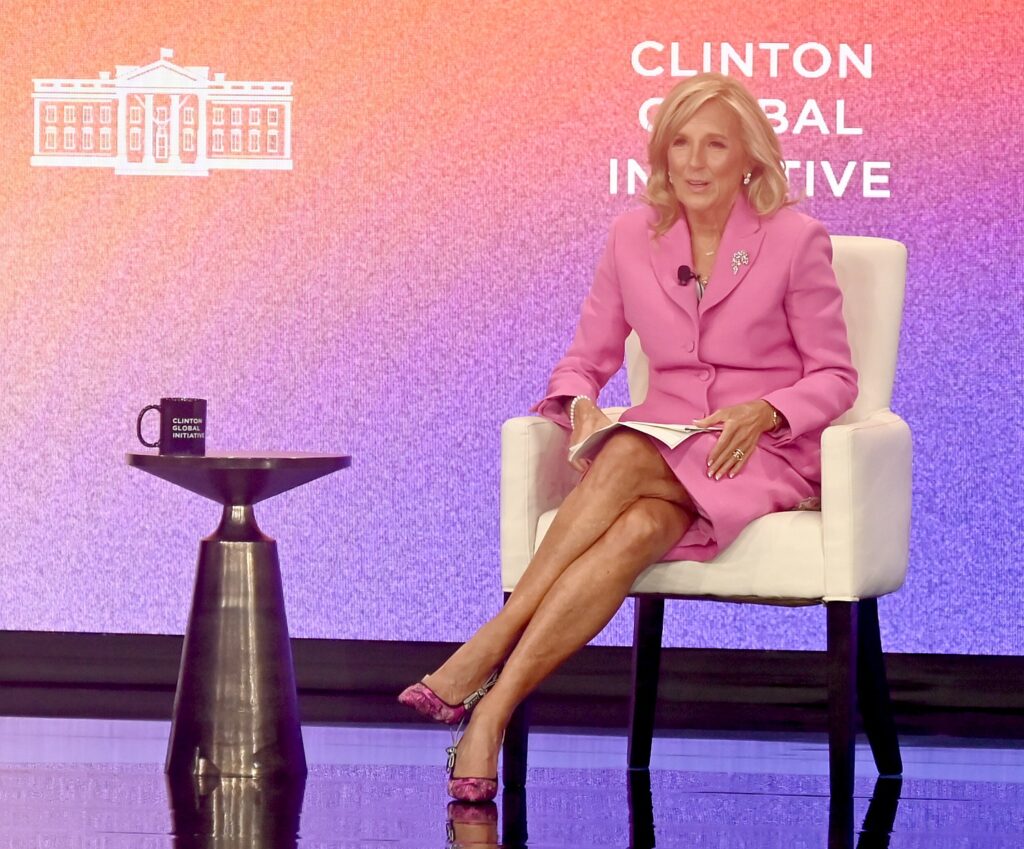
“Women are living longer, which means they are living longer with chronic pain,” Dr. Biden said to emphasize the need to determine why women are more likely to become afflicted by Alzheimer’s, MS, and auto immune diseases and no one knows why. Up until now, research on medications, therapies and treatments have only been developed with men as subjects. There has been virtually no study of ovarian health – arthritis, migraines – and why women getting these conditions.
President Biden was determined to do something about it, so allocated $100 million to ARPA-H – the mega-research agency of the government which Biden created to do health research in the same way ARPA researches and develops technology; then the National Institutes of Health allocated $200 million to study how menopause affects the brain, heart, and bone health. Now, the Department of Defense has allocated $500 million to study military women’s health, which will yield insights for all women.
Dr. Rice, a ground-breaking OB/GYN, said more study has to be done on how nutritional balance influences the cycle, how estrogen levels fluctuate throughout the cycle, and about lifestyle changes. “The only way we can understand how to introduce interventions is to include women in the studies early.” She added that social determinants must be considered in order to engender trust so women will volunteer to participate in clinical trials. “It starts with trial design.”

Monday’s CGI event followed the First Lady joining the top of the President’s Cabinet meeting last week, where she expressed gratitude to the agencies for their continued progress and momentum towards that goal. This was the first time the First Lady joined a Cabinet meeting and is a testament to how personally important this effort to advance women’s health research is for both the President and the First Lady.
Since launching the initiative last November, the First Lady has visited research centers and universities, and spoken with doctors and scientists across the country to understand the research questions we need to ask – and the answers they could find if we invest in women’s health.
“Since launching the White House Initiative on Women’s Health Research last November, the First Lady has put the spotlight on the urgent need to close the gap in how we fund and approach women’s health research,” FLOTUS Press Secretary Vanessa Valdivi stated.”The Biden-Harris Administration has quickly mobilized to make progress in less than year, and in the months ahead the First Lady will continue to push the work of this initiative forward, and build on the incredible momentum and enthusiasm we’ve seen across the public and private sectors.”
The White House Initiative on Women’s Health Research
The White House Initiative on Women’s Health Research is ensuring that research on women’s health is a priority and galvanizing new research on a wide range of topics. In his State of the Union address, President Biden called on Congress to make a bold, transformative investment of $12 billion in new funding for women’s health research. The President also signed an Executive Order on Advancing Women’s Health Research and Innovation that directed the most comprehensive set of executive actions ever taken to expand and improve research on women’s health.
The Initiative—led by the Office of the First Lady and the White House Gender Policy Council and Chaired by Dr. Carolyn M. Mazure —consists of executive departments and agencies across the federal government, such as the U.S. Departments of Health and Human Services, Defense, and Veterans Affairs, and White House offices, such as the Office of Management and Budget and the Office of Science and Technology Policy. Members of the White House Initiative on Women’s Health Research have already taken action to advance women’s health research, including:
- The President’s Advanced Research Projects Agency for Health (ARPA-H) committed $100 million for transformative research and development in women’s health for its first-ever Sprint for Women’s Health. ARPA-H received an unprecedented response to its call for proposals, receiving submissions from a mix of scientific visionaries from across the globe and sectors.
- The National Institutes of Health (NIH) launched a new agency-wide effort to invest $200 million for new, interdisciplinary women’s health research—a first step towards the transformative central Fund on Women’s Health that the President called on Congress to invest in. This cross-cutting effort will allow NIH to fund ambitious, multi-faceted research projects such as research on the impact of perimenopause and menopause on heart health, brain health and bone health.
- The Department of Health and Human Services announced $12.5 million in new funding to address the unique mental health and substance use treatment needs of women. The new Women’s Behavioral Health Technical Assistance Center will help fill vital gaps in health care providers’ knowledge and ability to treat the mental health and substance use conditions of women across the nation.
- The NIH launched a new challenge to accelerate the development of innovative technologies for the diagnosis of endometriosis, a debilitating condition that affects about 1 in 10 women and often takes years to be diagnosed. NIH will award $3 million in prizes to innovators who develop new technologies that make it easier and quicker to diagnose endometriosis.
- The National Science Foundation (NSF) issued its first-ever call for novel and transformative science and engineering research focused entirely on women’s health. NSF has also convened experts in the fields of engineering, biomedical research, and advanced computing to identify ways to improve women’s health research—including how artificial intelligence and machine learning can revolutionize our understanding of menopause.
- DoD and the Department of Veterans Affairs launched a new Joint Collaborative to Improve Women’s Health Research for Servicemembers and Veterans to further promote joint efforts to advance women’s health research and improve evidence-based care for women Servicemembers and veterans.
The First Lady joined Chelsea Clinton and Dr. Valerie Montgomery Rice at the Clinton Global Initiative to discuss women’s health research as part of the mainstage session, titled “Look Around,” where leaders from across the social impact spectrum highlighted the ways in which they break down barriers between peer institutions, cultivate partnerships and community, and align values and programs to create new, specific, and measurable ways to support one another.
As vice chair of the Clinton Foundation, Chelsea Clinton works alongside the Foundation’s leadership and partners to improve lives and inspire emerging leaders across the United States and around the world. This includes the Foundation’s early child initiative Too Small to Fail, which supports families with the resources they need to promote early brain and language development; and the Clinton Global Initiative University (CGI U), a global program that empowers student leaders to turn their ideas into action. A longtime public health advocate, Chelsea also serves as vice chair of the Clinton Health Access Initiative and uses her platform to increase awareness around issues such as vaccine hesitancy, childhood obesity, and health equity.
Dr. Valerie Montgomery Rice, president of Morehouse School of Medicine (MSM) and the first woman to lead the freestanding medical institution, is a renowned infertility specialist and researcher. She most recently served as dean and executive vice president of MSM, where she has served since 2011. Prior to joining MSM, Dr. Montgomery Rice held faculty positions and leadership roles at various health centers, including academic health centers. Most notably, she was the founding director of the Center for Women’s Health Research at Meharry Medical College—an HBCU in Nashville, Tennessee—one of the nation’s first research centers devoted to studying diseases that disproportionately impact women of color.
Dr. Montgomery Rice joined the President and First Lady for the Women’s Health Research Executive Order signing at the White House in March and participated in two White House Initiative on Women’s Health Research events with Dr. Biden in Atlanta, GA in February.
President Joe Biden Receives 2024 Clinton Global Citizen Award
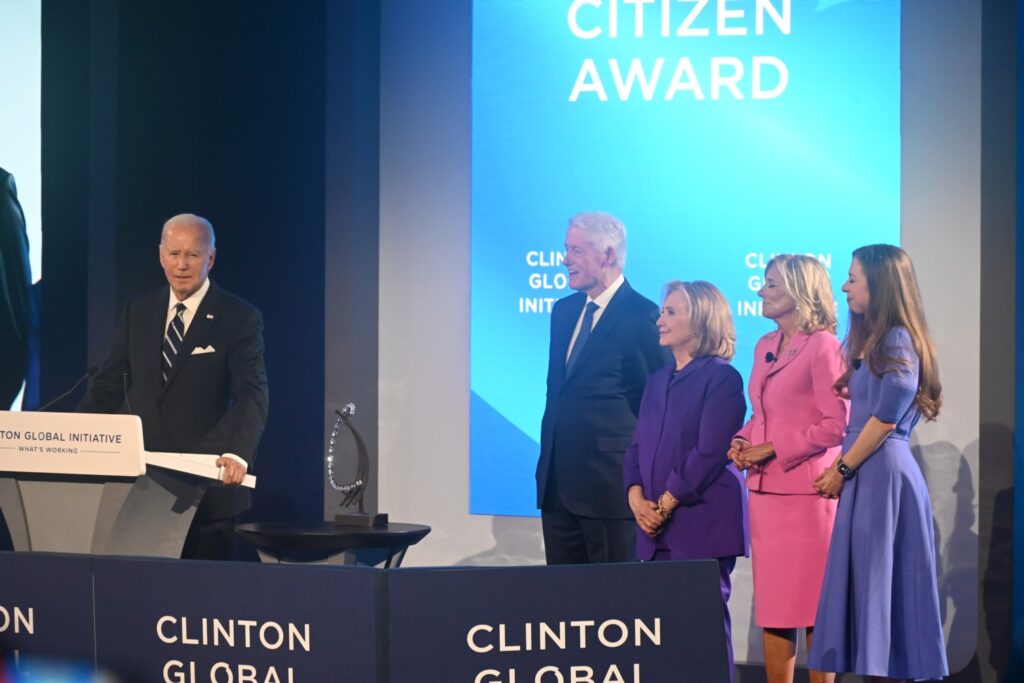
Immediately after the panel discussion, president Joe Biden came onto the stage to surprise the CGI attendees, and perhaps be surprised himself by being awarded 2024 Clinton Global Citizen Award.
The award acknowledged Biden’s transformational presidency in taking the United States out of deadly COVID pandemic and double-digit unemployment, to the strongest recovery, the strongest economy, while transitioning the economy and society for economic, climate and civil justice, reestablishing the United States’ global leadership and standing up for democracy, peace and prosperity around the world, and standing up for country over personal interest.
As President Biden told the United Nations General Assembly just hours before, “I’ve made the preservation of democracy the central cause of my presidency. This summer, I faced a decision whether to seek a second term as president. It was a difficult decision. Being president has been the honor of my life. There is so much more I want to get done. But as much as I love the job, I love my country more. I decided, after 50 years of public service, it’s time for a new generation of leadership to take my nation forward.”
To the Clinton Global Initiative he said, “I am congenitally optimistic about this country. I really am… We’re good people. We really are. We just have to live up to what we expect of others,” in humbly accepting the award.
Previous Clinton Global Citizen Award winners have included First Lady of Ukraine Olena Zelenska (2023); Dolores Huerta (2022) for her advocacy of human rights of women, children and working class people worldwide; Nadia Mura (2016), a Yazidi woman who survived her capture and enslavement by ISIS and has become a voice for women and children trafficked in conflict; and Malala Yousafzai (2014) who survived an attack by the Taliban, targeted for going to school, and has gone on to be a strong advocate for girls’ education.
__________________________
© 2024 News & Photo Features Syndicate, a division of Workstyles, Inc. All rights reserved. For editorial feature and photo information, go to www.news-photos-features.com, email [email protected]. Blogging at www.dailykos.com/blogs/NewsPhotosFeatures. ‘Like’ us at facebook.com/NewsPhotoFeatures, Tweet @KarenBRubin Threads: @news_and_photo_features

